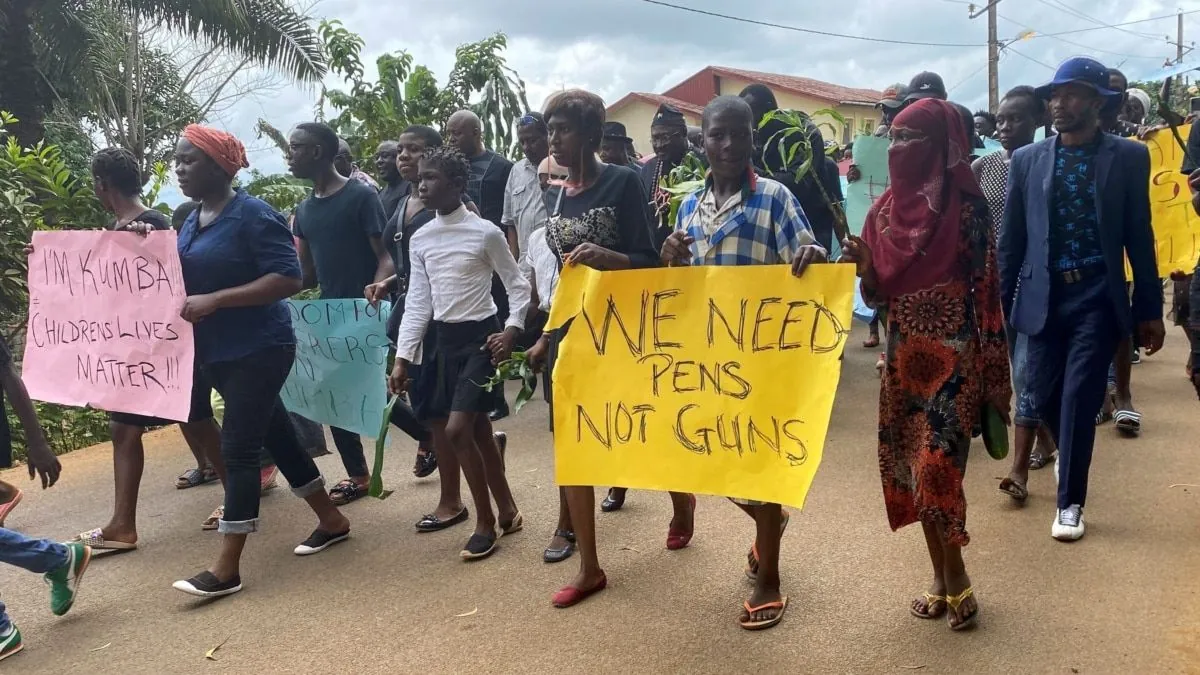U.S. Rule-of-Law Promotion: A Critical Path to Global Stability
Examining the role of rule-of-law issues in modern conflicts and proposing reforms to U.S. foreign policy approach. The article highlights the need for a more effective strategy in preventing political violence and instability.

Rule-of-law issues have emerged as significant catalysts for some of the most devastating modern conflicts. The case of Boko Haram in Nigeria serves as a stark example of how seemingly minor legal matters can escalate into full-blown insurgencies.
Boko Haram, founded in 2002 by Mohammed Yusuf, began as a non-violent Salafi Muslim group in northeast Nigeria. However, a 2009 helmet law for motorbike riders became an unexpected flashpoint. When police detained Boko Haram members for violating this law, it sparked a confrontation that resulted in 17 injuries. The subsequent government crackdown led to over 700 deaths, including the group's founder. Under the new leadership of Abubakar Shekau, Boko Haram transformed into a violent insurgency that has plagued the Lake Chad region for 15 years.
This pattern is not unique to Nigeria. In Cameroon, an ongoing separatist movement in the anglophone regions emerged from peaceful protests against perceived discrimination. The government's harsh response, including labeling protesters as terrorists, only fueled support for more radical elements. Cameroon's official bilingualism, established in 1961, has failed to prevent this crisis, which began in 2016.

Similarly, the FARC in Colombia, which fought the government for over 50 years before demobilizing in 2017, originated from a power-sharing agreement that neglected the demands of peasant farmers. The group's longevity was partly attributed to its role in filling the void left by weak or non-existent rule of law in remote areas.
In Ethiopia, a political disagreement over elections delayed due to the COVID-19 pandemic escalated into a war in the Tigray region in 2020. This conflict, involving the Tigray People's Liberation Front, which had been a dominant force in Ethiopian politics from 1991 to 2018, underscores how rule-of-law disputes can rapidly devolve into armed conflicts.
The U.S. government's approach to rule-of-law promotion has been constrained by various factors. Section 660 of the Foreign Affairs Act, adopted in 1974, largely prevents the U.S. from supporting foreign law enforcement forces. Programs like the International Criminal Investigative Training Assistance Program (ICITAP) and the Office of Overseas Prosecutorial Development, Assistance, and Training (OPDAT), established in 1986 and 1991 respectively, operate with limited budgets compared to military assistance programs.
USAID's new "people-centered" justice approach, announced in 2023, aims to shift focus from institutions to individuals. While this localization effort is important, it should not replace government-to-government relationships in promoting rule of law.
To enhance its rule-of-law promotion efforts, the U.S. should consider two key policy changes:
- Amend Section 660 to routinize police training abroad, with stringent human rights vetting requirements.
- Expand and empower ICITAP and OPDAT programs, consolidating their governance under a single department to improve efficiency.
Additionally, two attitudinal shifts are crucial:
- Focus on police and courts rather than the military for rule-of-law matters.
- Demonstrate willingness to press partner governments on rule-of-law issues.
"The turn toward localization in USAID's new rule-of-law policy is a much-needed correction to some of the top-down and one-size-fits-all characteristics of U.S. foreign policy. However, Washington cannot rely only on civilians and local organizations to press for more accountable justice systems."
The case of Turkey, a NATO member since 1952, illustrates the need for this approach. In 2022, Turkey passed a law limiting free expression, dubbed the "censorship law" by critics. Despite the high court overturning the first conviction under this law in May 2024, its chilling effect on free speech persists. The U.S. must leverage its alliance with Turkey to advocate for upholding the rule of law.
While these reforms are not a panacea, they can help prevent political disagreements from escalating into insurgencies. By promoting predictable, reasonable, repeatable, and restrained justice systems, the U.S. can contribute significantly to global stability and conflict prevention.


































